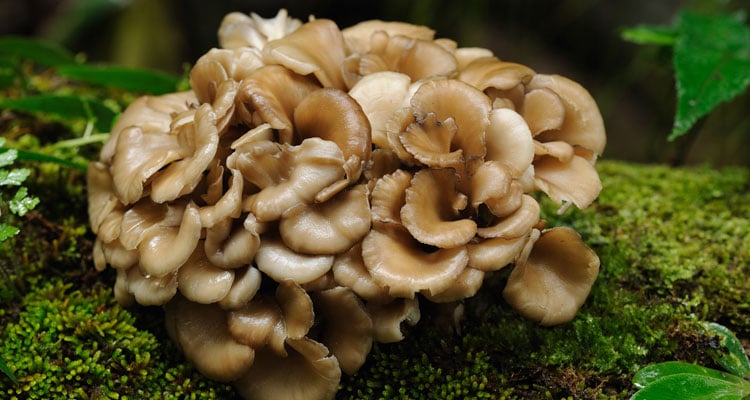
The immune system has the 24/7 job of defending constant assaults to the body’s well-being.
The immune system is in charge of both resisting external threats while preventing internal ones. This is why for centuries people have looked for ways to naturally support their immune system. One of the most popular methods is the use of maitake mushrooms.
We Asked Three Reputable Physicians For The Fundmental Steps To A Stronger Immune System. Get Their Answers In Our Guide.
WHAT’S IN MAITAKE MUSHROOMS?
Maitake is one of the most well-researched mushrooms in the medicinal mushroom family. Its key component is beta-glucan, which is a type of polysaccharide. According to the NCBI, beta-glucans “increase host immune defense by activating complement system, enhancing macrophages and natural killer cell function.”
Essentially, Maitake Mushrooms can help the body produce more natural killer (NK) cells.* These are white blood cells that carry out much of the immune system’s capabilities. When the beta-glucan from Maitake enters the system, it pokes at the cell surface receptors that signal to the body that it has a fight on its hands. Instead of just boosting the immune system, the Maitake mushroom acts more like an audit. It gets the patient’s immune system to do more of the right stuff, while signaling it to cease doing the wrong stuff.*
It is of the utmost importance to try to restore balance to the body. Maitake mushrooms give the immune system feedback and direction which continues even after its been filtered from the body.*
ALTERNATIVES FOR IMMUNE SYSTEM SUPPORT
There’s no shortage of immune system supplements to try. And it’s important that you do try different approaches because each body is unique. What might work well for one patient won’t work well for another.
Both mushroom extract blends and rice bran extracts contain beta-glucans, which means they trigger the same reaction in the body and work on the same systems. They are both immune system modulators.* However, many supplements focus on boosting the immune system. Key ingredients in these boosters include graviola, astragalus, echinacea, goldenseal, and other adaptogenic herbs.*
Choosing the right supplement will depend upon what you’re addressing and your patient’s specific needs. Many of these supplements work in similar ways so it is important to consider variations in your patients when addressing certain issues with supplements.
The goal with Maitake mushroom supplements is to encourage the body to do more of what it needs to do and avoid destructive activity.* It’s usually better practice to lean towards modulation rather than simply boosting. That’s the decision you end up making when deciding between recommending traditional boosters and something like the Maitake mushroom.
LIFESTYLE CHANGES THAT IMPACT THE IMMUNE SYSTEM
Supplements support patients through times of stress and poor health.* However, lifestyle changes go a long way towards support immune system function.
DIET
If your patient doesn’t have a healthy diet, then their immune system isn’t going to function correctly. Almost 80% of the immune system’s cells are produced in the gut. Gut health is crucial. If your patient’s issues stem from a poorly functioning immune system, a good place to start is asking them to keep a food diary and then recommend diet changes after assessing their records. Asking them to remove sugar from their diet will likely be your first step.
SLEEP
Talk to patients about their sleep habits and the quality of their rest. Remind patients not to stay up all night looking at their phone or exhausting their Netflix queue. The immune system gets a chance to regenerate when the body is rest. Robbing the body of the time it needs to recover does the body a disservice, as the immune system is fighting off colds, viruses, and even cancer on a daily basis.
ALCOHOL AND NICOTINE
And, speaking of play, talk to your patients about their alcohol intake. More than one drink a day is likely too much. Work with them on a plan to reduce how much they drink. Another vice to help your patients shed if they’re concerned about their immune system is smoking.
These can be challenging lifestyle changes, but they can have a huge impact on your patient’s quality of life and overall health. Because lifestyle changes are stressful to adopt, it’s important to create a reasonable plan that your patient can follow. Challenge them to find alternatives to distressing with alcohol, cigarettes, and binge-watching television. Coach them to explore exercise as a way to divert unhealthy energy into something that actually boosts the immune system.
Exercise suppresses the immune system temporarily. It then bounces back with a little extra pep in its step. In some ways, it’s similar to what exercise is already accomplishing – putting stress on a system to make it stronger. This is similar to the effects induced by introducing beta-glucans into your system via Maitake mushrooms.*
Your patient’s body is not a static system. It’s constantly in flux, creating new cells, expelling the old, and fighting off the bad ones. The immune system is your patient’s primary defense against the stresses of life. By working with them to improve their immune system, you are setting them up to succeed.